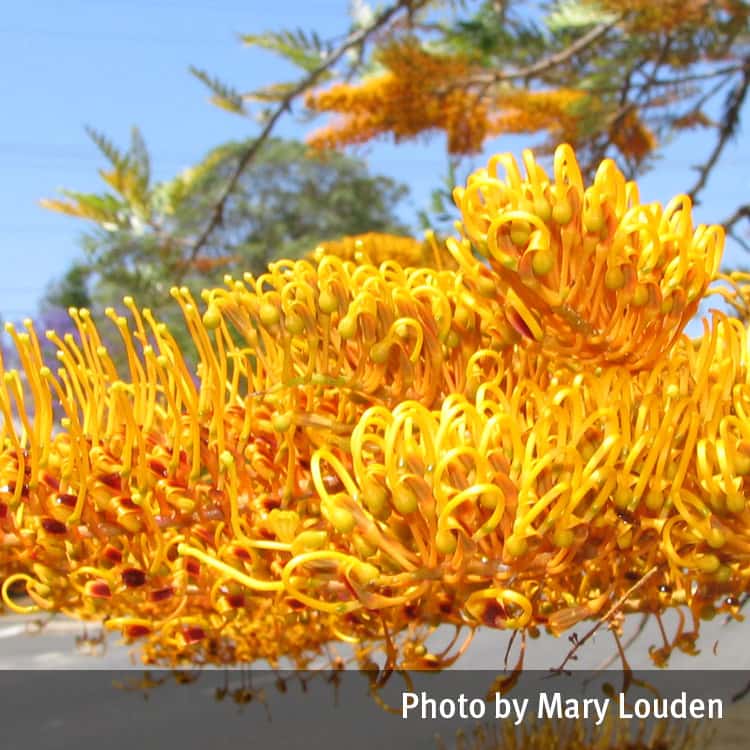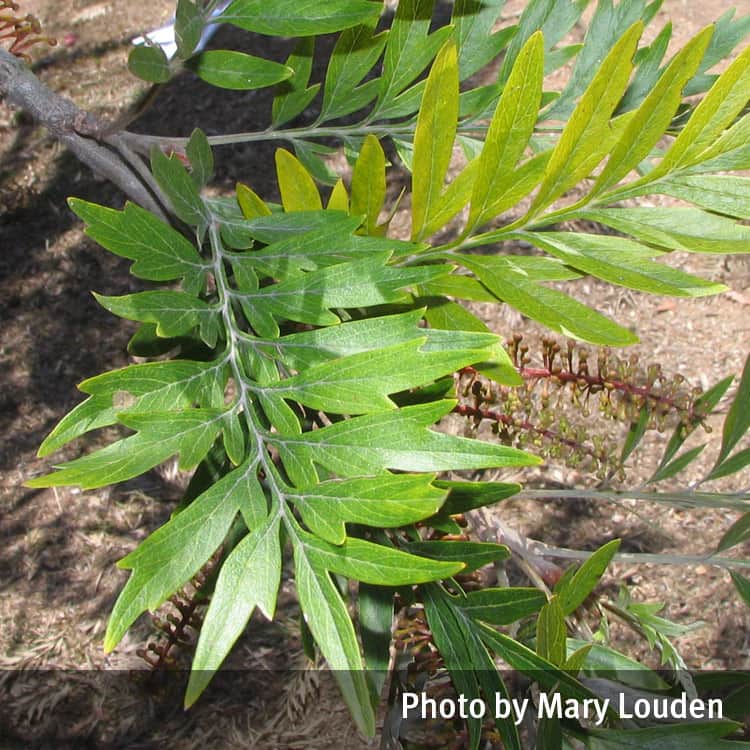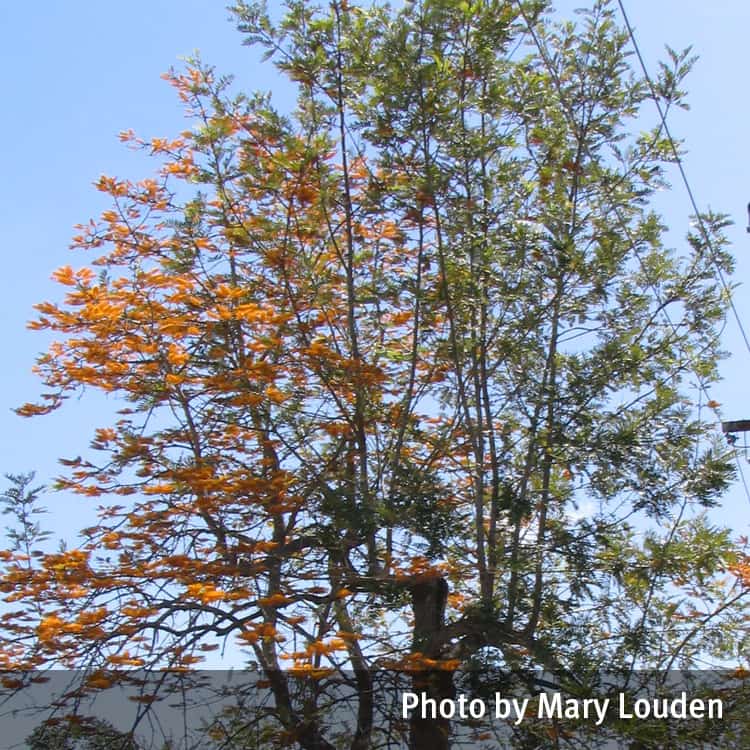Warning
For all eye exposures rinse the eye with water for 15 minutes. Seek medical assistance if irritation persists.
Description
A very tall, native tree with furrowed grey bark often cultivated as an ornamental.
The timber has been popular for cabinet work and furniture, although is not as commonly used now. The flowers are orange-yellow and occur in dense spikes at the ends of the branches.
The leaves measure 15-30cm long, are grey-green in colour and divided into many narrow segments.
Toxicity
Symptoms
The sap, sawdust or fresh timber can cause contact dermatitis. The reaction may be delayed several days. The sap or sawdust may cause eye irritation.
Images



Details
Common name: Silky oak
Botanical name: Grevillea robusta
Family: Proteaceae
General description: A very tall, native tree with furrowed grey bark often cultivated as an ornamental. The timber has been popular for cabinet work and furniture, although is not as commonly used now.
Flowers: The flowers are orange-yellow and occur in dense spikes at the ends of the branches.
Leaves: The leaves measure 15-30cm long, are grey-green in colour and divided into many narrow segments.
Fruit/Berries: The fruit are woody, ellipsoid in shape, 1.5-2cm long, with a persistent style or stalk at the end of the fruit.
Other: The sap is an irritant.